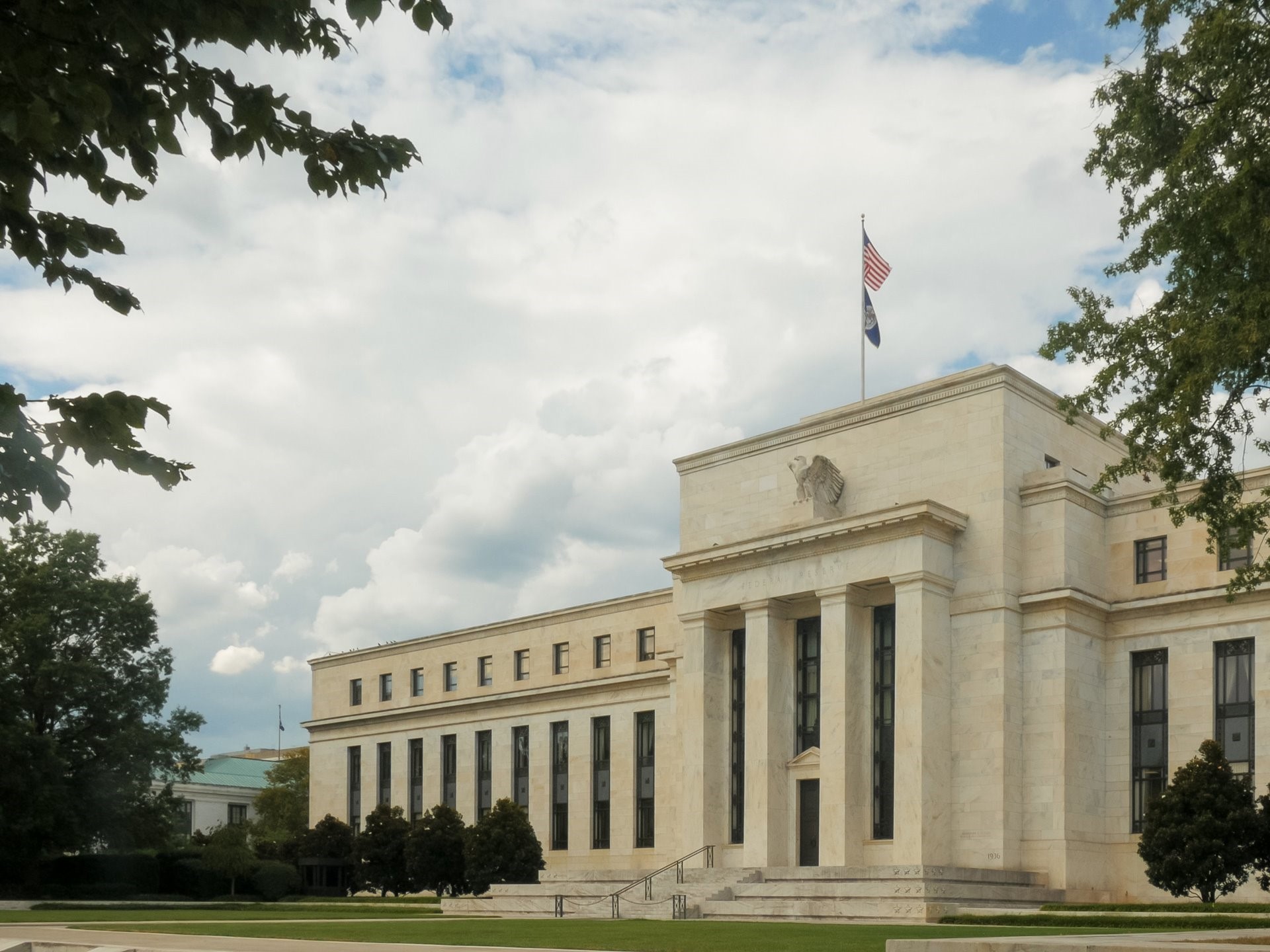Long-term rates inch back up, Fed may make smaller cut
Confidence in the overall American economy, paired with confidence that the Federal Reserve will cut short-term rates this month, has led to a slight uptick in long-term rates. The average for a 30-year fixed-rate mortgage is now 3.81% according to Freddie Mac. For the last few weeks that rate has been hovering steadily around 3.75%. This time last year, that same 30-year fixed was above 4.5%.
Spurring the confidence were much higher than expected retail sales in June, which increased by 0.4% against the expected 0.1%. Year-over-year, consumer spending is up by 3.4% and retail sales have been increasing for the last four months. Those numbers from the Commerce department indicate strong consumer spending. These findings are not expected to curtail a rate cut by the Fed this month, although the most recent data, including this week's retail sales along with a strong jobs number and a slight uptick in inflation, may lead the Fed to take a less aggressive approach to future cuts.
However, New York Fed President John Williams has indicated he would like to see a much stronger reaction to the current economic climate. "It's better to take preventative measures than to wait for disaster to unfold," said Williams while speaking to the Central Bank Research Association.

Williams did not specifically talk about a rate cut, but offered this more general statement: "The expectation of lower interest rates in the future lowers yields on bonds and thereby fosters more favorable financial conditions overall. This will allow the stimulus to pick up steam, support economic growth over the medium term, and allow inflation to rise." He later walked back those statements via a spokesperson, claiming the comments were more from an academic research standpoint and "not about potential policy actions."
The next Fed meetings are July 30-31 and that is when short-term rates are expected to be cut.
The balancing issue to the American economic strength is the ongoing trade war between the United States and China as well as poor global economic health. Treasury Secretary Steve Mnuchin said "there are just a lot of complicated issues" when it comes to the tariff issues with China. Mnuchin, along with U.S. Trade Representative Robert Lighthizer, had a phone call with the Chinese government on Thursday. No details about the phone call were released. That was the second phone conversation the two sides have had since their last in-person meeting in June.
Despite the issues with China, and the worldwide economic slowdown, analysts believe the U.S. economy is still growing, albeit at a more modest pace. The Federal Reserve's Beige Book, released on Wednesday, showed similar growth in May and June as in previous reports. The Beige Book survey is a report of anecdotes drawn from business contacts around the country by the central bank's 12 regional banks.
A strong manufacturing report this month from the Philadelphia Federal Reserve Bank went well above expectations and hit its highest level in a year. The index jumped up to a 21.8 reading after recording paltry 0.3 reading in June. Any reading that is above 0 is considered an improvement in conditions, but analysts were only expecting an increase of 4.5 for June. There were strong increases in the shipments, new orders and employment components.
The Philly manufacturing report is a key indicator for economic strength, so some analysts feel this strong of a report can actually reduce the potential for a rate cut by the Fed this month.
Housing inventory down, prices going back up

The median home price in the United States is now $266,000, according to the latest data from ATTOM Data Solutions. That's a 10.8% gain from the previous quarter, which is the largest quarterly increase since 2015. Summer is a popular buying season so it makes sense that as people rush to the market, prices are going to go up.
This issue of pricing is compounded by a lack of inventory. A report from the U.S. Census Bureau and the U.S. Department of Housing and Urban Development shows that housing starts fell by 0.9% from May to June. Single-family homes did increase at a rate of 3.5% compared to May numbers.
Completion of those single-family home starts decreased by 1.8% compared to May, however, which is also contributing to the lack of inventory. Moreover, new construction pricing remains out of reach for many first-time homebuyers.
Odeta Kushi, deputy chief economist for First American, said in a statement, "Restrictive and costly regulations, rising construction costs and an ongoing labor shortage in the construction industry continue to put pressure on builders. If these supply headwinds persist, buyers looking for homes may be facing a tighter market in the second half of the year." Kushi also notes he hopes the lower interest rates and increasing household income will help spur purchases of new homes.
Oil prices spike, Iran denies drone shot down

International oil prices spiked on Friday morning around 2% in reaction to the ongoing dispute between the United States and Iran. Earlier this week, President Trump said that, in a defensive move, a U.S. Navy ship had shot down an Iranian drone in the Straight of Hormuz. Iran says that one of their drones was not shot down and suggested that the U.S. had destroyed its own equipment.
Just two days ago, oil prices hit their lowest level in over a week. At that time, Secretary of State Mike Pompeo said Iran was ready to negotiate on its missile program. Oil has been volatile price-wise in recent days with Hurricane Barry in the Gulf of Mexico shutting down a good portion of the oil production from the U.S.
Gas and energy consumption are considered volatile with regard to price, so they are typically left out of core data measurements used to gauge inflation.


